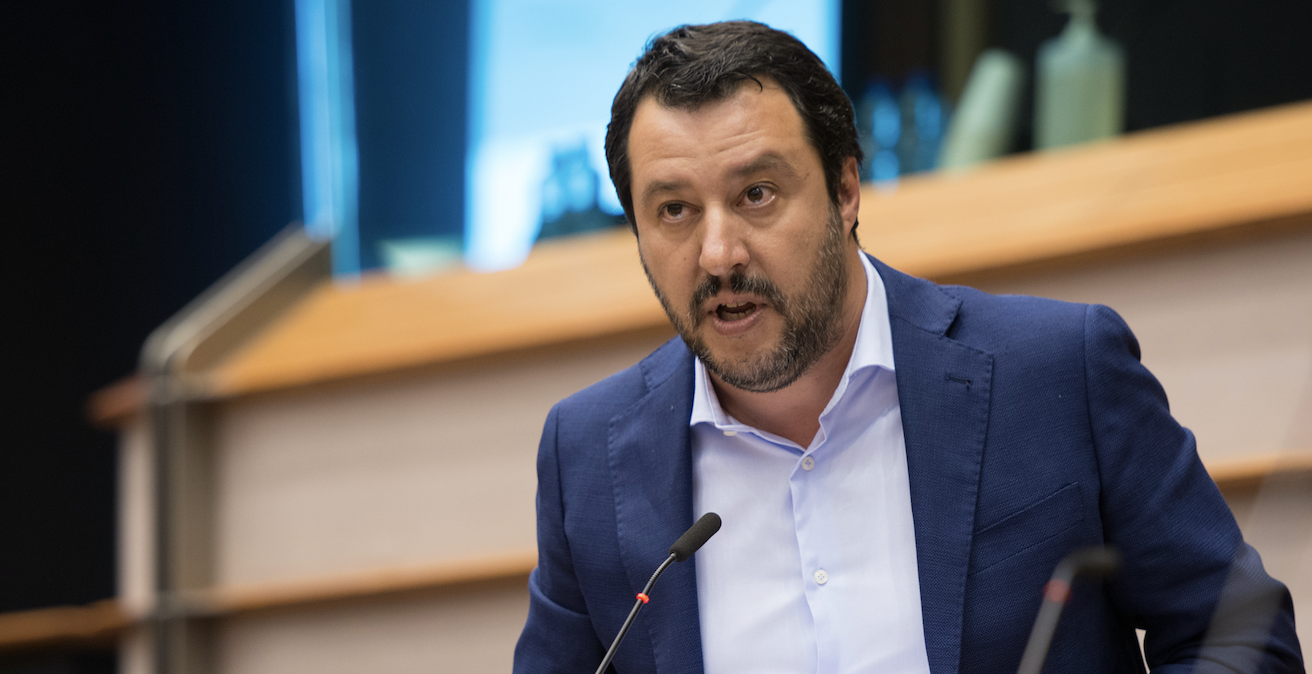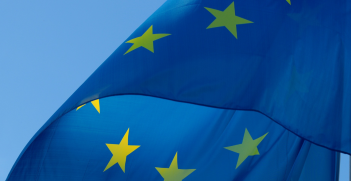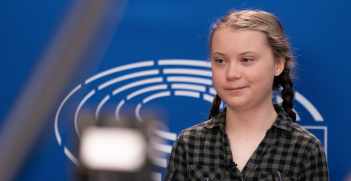Europe’s Latest Diplomatic Spat: Nothing New Under the Italian Sun

Italy’s recent blocking of EU recognition of an interim-president in Venezuela and its populist charge against France are founded on populist politics at home and historical fault lines in Italy’s foreign policy, rather than genuine geopolitical strategy.
Make no mistake: the crescendo of diplomatic tensions between Paris and Rome in the last few months is pure political campaigning on both sides in view of the May 2019 European Parliament elections. Of course, this political shirt-fronting does not occur in a vacuum, but rather it is deep-seated in the natural geopolitical and commercial competition between the two Mediterranean founders of the European Union. France and Italy have been best frenemies since the national unification of the latter in 1860, which France had initially blocked in support of the Roman Papacy. In the intervening 50 years, Italy played the role of the poor cousin to France, only occasionally clashing in proxy wars on North African shores. Even then, France quashed Italy’s colonial claims over Tunisia, pushing Rome to settle for second best with, at the time, much poorer Libya. Essentially, Italy swallowed its pride and stuck with France against the Austro-Germans in World War I to complete the reunification of its northeastern regions. Things got complicated with the rise of Mussolini’s fascist regime in the 1920s in a wider context that saw the reshuffling of post-Napoleonic European power balances. Fascist Italy could find unprecedented geopolitical space due to the faltering situation of the old empires (French, British, Austro-Hungarian and Ottoman) and the emergence of new ones (Soviet, Nazi and American). This led Italy to fight World War II in direct opposition to France, with the clear objective to regain not only previously lost frontier territory (Nice, Savoy and Corsica) but essentially to outright replace France as the Mediterranean hegemon.
We all know how badly Mussolini’s grand plan ended up for Italy. Subsequently, business as usual in the Franco-Italian relations resumed in the postwar period, with the two countries busy at reconstruction and industrial redevelopment. With so much to do and a growing pie to share, les Trente Glorieuses or il miracolo economico (as French and Italians respectively call the Western European postwar boom) saw the apex of the Transalpine relationship. This fraternity of hearts and intents culminated in the European integration project that kicked off with the 1957 Treaty of Rome signed by Italy, France, West Germany, Belgium, Holland and Luxembourg, the six founders of what today we call the European Union.
Business as usual in Franco-Italian relations during the postwar and Cold-War periods effectively meant France could still punch above its weight and quash Italy’s ambitions in Mediterranean affairs. This was chiefly due to the fact France could leverage its nuclear power from within the UN Security Council, all the while retaining post-colonial ties to most of North and West Africa under the so-called Françafrique.
It was not until the 1980s that for the first time an Italian government started to openly challenge the Franco-American hegemony over the Mediterranean world. It was also the first Italian government to be led by a Socialist, Bettino Craxi, and not by a leader of the Christian Democracy Party, which had been the party of continuity and of close alignment with the Franco-American establishment in Europe. Instead, Craxi was somewhat of a proto-populist and so staged a more independent geopolitical posture in Mediterranean affairs to differentiate from his Christian Democrat predecessors. It didn’t go well for Craxi, who soon lost power after becoming embroiled and scapegoated in the anti-corruption killing season that wiped out Socialists and Christian Democrats alike in 1992. Craxi died in self-imposed exile in Tunisia to avoid conviction, but his legacy was revived by his protégé, Silvio Berlusconi, who quickly morphed from media lobbyist a-la Rupert Murdoch into an active politician in 1994. Across the 1990s and early 2000s, the controversial media tycoon managed to win office three times. As many old Socialist Party hands helped him set up his personal party, Forza Italia, Berlusconi’s foreign affairs policy closely resembled Craxi’s in terms of Euroscepticism and renegade deals with powers outside the remit of the Franco-American sphere of influence. Berlusconi famously made friends with the likes of Muammar Gaddafi and Vladimir Putin, and often went rogue on EU and NATO strategies. As with Craxi, also for Berlusconi running a more independent foreign policy didn’t bode well, as he was ousted by so-called technical governments first in 1995 and then again in 2011. Even Berlusconi’s political nemesis, Romano Prodi was pushed out by a leadership spill in 1998 by the post-communist leader, Massimo D’Alema, who was more amenable than Prodi to side with NATO in attacking Serbia to end the ethnic conflicts in former Yugoslavia. Even as he went on to later become President of the EU Commission, Prodi proved an appeaser of Putin’s Russia and closer to the German rather than French geopolitical strategy.
Despite the hiccups caused by Craxi, Berlusconi and Prodi, France has always easily managed to keep Italy as a minority stakeholder in European and Mediterranean affairs until very recently. More recently, Italy’s notorious financial woes never allowed the three centrist governments led by Matteo Renzi’s Democratic Party in 2013-18 to meaningfully challenge the European establishment dominated by France (security-wise) and Germany (economy-wise). This protracted imbalance of power has significantly shrunken Italy’s geopolitical space, as exemplified by how Italy sleep-walked into the disastrous NATO intervention in Libya and into the Syrian refugee crisis.
Italy’s crisis of confidence and lack of direction in foreign affairs were certainly contributing factors to the populist change of government in 2018. For the past year, the unusual coalition government formed by national populists, Matteo Salvini’s Lega, and anti-establishment progressives, Luigi Di Maio’s Five Star Movement, is taking yet another page from the old French rivalry book. In the absence still of a consistent foreign policy agenda – if one exists at all – both governing parties chase popular favour wherever it can be found. Apparently, sometimes this place happens to be abroad. In 2019, it’s politically expedient to shout against the European establishment embodied by the likes of French President Emmanuel Macron, who himself does not shy away from this kind of politicking and so spreads the populist fire. After the European Parliament vote, expect Salvini and Di Maio to focus on something else, possibly again on Germany’s monetary grip over the single currency, as Italy slips into recession for the third time in a decade.
The recent contrarian moves of Italy’s foreign policy, including openly backing the Yellow Vests and blocking the EU recognition of Juan Guaido as Venezuela’s interim-president, are not the long-awaited implementation of distinctly Italian geopolitics, but rather the white noise of domestic politics that is produced by combining sounds of all different frequencies together.
Dr Giovanni Di Lieto teaches international trade law in the International Business program at Monash University in Melbourne as well as in the master of economics and management in the University of Bologna. He engages in expert analysis on the geopolitics of trade and investment for media, industry and government outlets. His professional career developed as a commercial law practitioner in Italy, and then as a global value chain specialist across the US, Europe and China.
This article is published under a Creative Commons License and may be republished with attribution.





